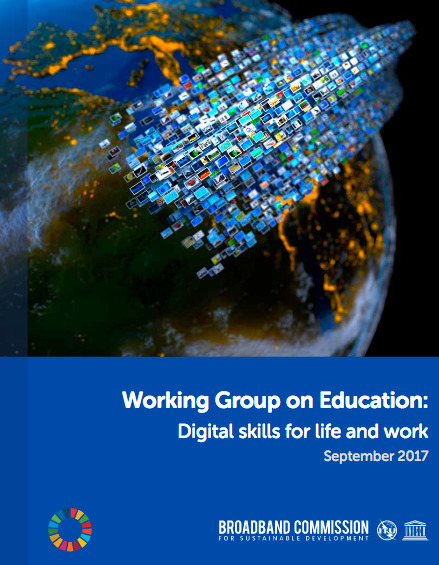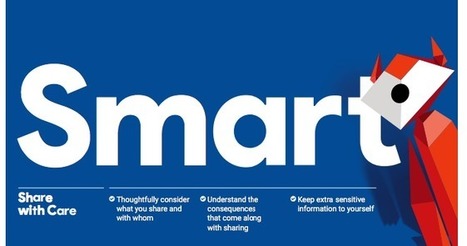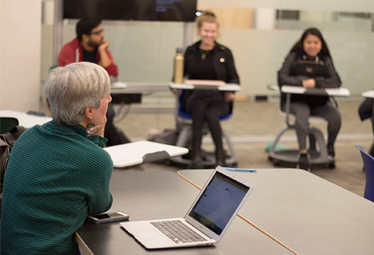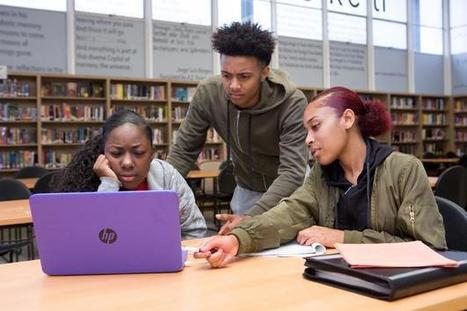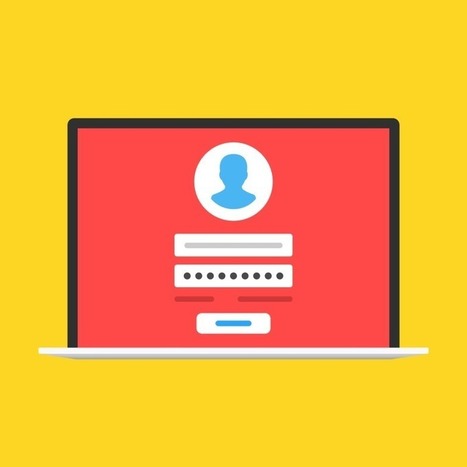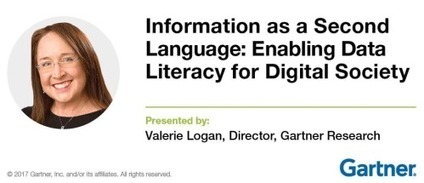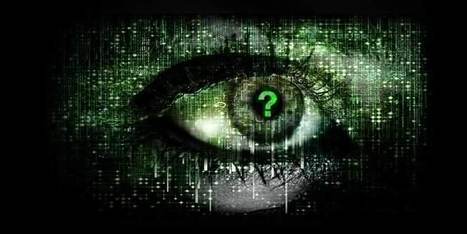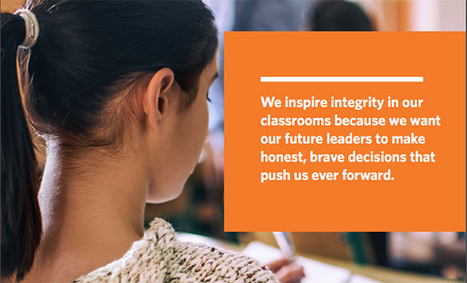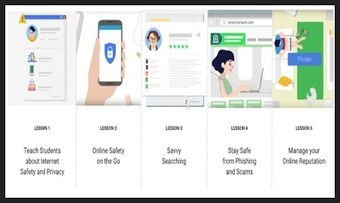 Your new post is loading...
 Your new post is loading...

|
Scooped by
Elizabeth E Charles
October 1, 2020 6:06 PM
|
What is good digital citizenship? Previously, we’ve offered a definition of digital citizenship in the past. Below, we offer some specific examples of good digital citizenship. From communicating with on social media with clarity and respect to respecting other’s privacy to thinking critically and carefully about ideas and conversations and events before responding or contributing, practicing good digital citizenship is often a matter of the golden rule–and a little bit of common sense.

|
Scooped by
Elizabeth E Charles
April 25, 2019 3:19 PM
|
Every aspect of life can be guided by artificial intelligence algorithms – from choosing what route to take for your morning commute, to deciding whom to take on a date, to complex legal and judicial matters such as predictive policing.
Big tech companies like Google and Facebook use AI to obtain insights on their gargantuan trove of detailed customer data. This allows them monetize users’ collective preferences through practices such as micro-targeting, a strategy used by advertisers to narrowly target specific sets of users.

|
Scooped by
Elizabeth E Charles
April 11, 2019 5:25 PM
|
Digital Passport is an excellent web tool and mobile app designed for students in grade 3-5 to educate them on the fundamentals of digital citizenship and help them stay safe while using the net. Similar to Digital Compass (another digital citizenship tool we covered in a previous post),

|
Scooped by
Elizabeth E Charles
October 10, 2018 5:41 PM
|
The mot recent Facebook hoax making its rounds has prompted me to remind everyone about the importance of using strong and varied passwords (don't use the same password for Facebook as you do for your bank account).

|
Scooped by
Elizabeth E Charles
September 30, 2018 3:31 PM
|
How do educators support digital citizenship? Does information need singular meaning to be useful? Has cognitive dissonance grown in the digital era? These were a few of the questions tweeted at #DLNchat on Tuesday, September 11, when we debated how to best teach digital and information literacy in higher education.

|
Scooped by
Elizabeth E Charles
September 6, 2018 7:12 PM
|
Planet Nutshell is a video production company that produces short, animated videos to explain products, services, and concepts. Within their education section you will find videos addressing topics in mathematics, physics, climate science, and cyber safety.

|
Scooped by
Elizabeth E Charles
June 5, 2018 3:22 PM
|
This section looks at the various aspects and principles relating to digital literacy and the many skills and competencies that fall under the digital literacy umbrella. The relationship between digital literacy and digital citizenship is also explored and tips are provided for teaching these skills in the classroom.

|
Scooped by
Elizabeth E Charles
March 15, 2018 5:55 AM
|
The Essential Fluencies are a solid foundation for effective modern learning. They cover all the bases of the skills students need for success beyond school. Developing these Fluencies in our students is a critical thinking journey in itself. That’s why you’ll find good questions at the heart of Essential Fluencies development.
Every stage of every Fluency asks us to think deeply and critically, and their embedded skills and abilities are about stretching thought and imagination. By asking good exploratory questions, students learn the essence of each Fluency and its phases. That’s what the following lists are meant to give you and your students.

|
Rescooped by
Elizabeth E Charles
from Daily Magazine
February 13, 2018 3:45 PM
|
Whether you're in the office or on the road, a VPN is still one of the best ways to protect yourself on the big, bad internet.
Via THE OFFICIAL ANDREASCY

|
Scooped by
Elizabeth E Charles
January 21, 2018 11:08 AM
|
Media Literacy Lessons. 25 Teaching Tools To Organize, Innovate, & Manage Your Classroom. What is Digital Literacy? Media & Technology. What Digital Literacy

|
Scooped by
Elizabeth E Charles
November 10, 2017 5:02 AM
|
I’ve written in the past about understanding the Terms of sites you are asking students to use and been interviewed about the implications of social media in classes. This year, one of the things I want to focus on is bringing those two things together. It is important that we don’t just know the terms we are asking our students to work under when we enforce the use of social media or other proprietary digital platforms for course work, it is important we know the implications and the devastating effects these tools and platforms might have in the future for our students.
The report, released today, highlights the emergence of a new global skills gap where gender, class, geography and age can have a huge impact on whether a person is able to harness new technologies or not. It also presents strategies for ensuring all groups of people can develop these skills.
Via Nik Peachey

|
Scooped by
Elizabeth E Charles
September 21, 2017 2:26 PM
|
Hands up if you remember when life skills for students living in a digital world and the literacy that goes along with it could be summed up with this statement?
Don’t post anything online that you wouldn’t want your grandmother to see
Ah, life and teaching was so much easier.
We’ve certainly evolved and become more aware of things and have a bigger picture of what it means to be literate and relevant in the year 2017. Digital literacy isn’t an “event”; it’s a way of being.
|

|
Scooped by
Elizabeth E Charles
November 9, 2019 2:25 PM
|
Be Internet Awesome is a very good platform that teaches kids the fundamentals of digital citizenship and online safety. This is basically a program developed in collaboration between Google and other safety platforms such as Internet Keep Safe Coalition, ConnectSafely, and Family Online Safety Institute. Be Internet Awesome provides a wide variety of digital citizenship resources for kids, teachers and educators that include lesson plans, guidelines, classroom activities, and several other downloadable materials.

|
Scooped by
Elizabeth E Charles
April 20, 2019 1:37 PM
|
When students can distill course topics into the essential information, translate that for a general audience, and then post that information in a public place – that feels good. Instructors who use our tools to assign students to create or expand Wikipedia articles often tell us about the confidence and empowerment that their students find in the exercise. Students get to be the expert. And sometimes they are the best ones to translate complex academic topics for a general audience because they remember what it was like to learn it for the first time.

|
Scooped by
Elizabeth E Charles
October 19, 2018 7:35 AM
|
Digital Perceptions is a tool that is aimed at getting people thinking about their digital identity, and how they are perceived online. It was conceived of 4 years ago in a post by Donna Lanclos and me, and now, thanks to Zac Gribble it is coded and live. It is still draft and in development.…

|
Scooped by
Elizabeth E Charles
October 6, 2018 8:07 AM
|
Commentary: edWeb's Julia Ottesen shares how a free curriculum for K-12 students addresses a wide range of issues, from hate speech to time management.

|
Scooped by
Elizabeth E Charles
September 27, 2018 3:06 PM
|
59% of U.S. teens have been bullied or harassed online, and a similar share says it's a major problem for people their age. At the same time, teens mostly think teachers, social media companies and politicians are failing at addressing this issue.

|
Scooped by
Elizabeth E Charles
July 16, 2018 9:32 AM
|
As teachers in 2018, it is more important than ever to understand and model effective digital citizenship and digital footprints not only for students, but as leaders in our profession, through an authentic online persona. Three questions spring to mind:
1) What does digital citizenship actually mean?
2) Why is a thoughtful digital footprint so important for pedagogy, professional practice and reputation? and
3) How do citizenship and footprints in the digital space link to social media use?

|
Scooped by
Elizabeth E Charles
March 15, 2018 6:10 AM
|
Digital society demands of its citizens data literacy, developed for competitive advantage and agility. Data and analytics leaders must follow the example of English as a Second Language (ESL) and treat information as the new second language of business, government, communities and our lives.

|
Scooped by
Elizabeth E Charles
March 15, 2018 5:50 AM
|
When digital citizenship cemented itself into the public consciousness only a few years ago, it definitely had its critics. That remains true even today as we strive to understand what it means and how to practice it in our homes and classrooms. Many digital citizenship myths still have some of us doubting the intrinsic need for its practices. One thing is certain: today, we acknowledge that the digital citizen is a global citizen.
Our job as citizens requires more than just being informed. We must also be vigilant about verifying information before posting it on social media.
Via EDTECH@UTRGV

|
Scooped by
Elizabeth E Charles
November 12, 2017 11:59 AM
|
Digital citizenship, according to Common Sense Media, is “a way of thinking critically online, being safe with your information and who you connect with and acting responsibly in how you communicate and behave.”

|
Scooped by
Elizabeth E Charles
October 14, 2017 8:54 AM
|
Google has recently launched a free online training course for teachers and educators to help them learn more about the concept of digital citizenship. The Digital Citizenship and Safety Course offers a wide variety of materials and tutorials geared towards educating teachers on the best strategies to integrate the ethos of digital citizenship into their curriculum.

|
Scooped by
Elizabeth E Charles
September 27, 2017 3:34 PM
|
To thrive in today’s innovation-driven economy, workers need a different mix of skills than in the past. In addition to foundational skills like literacy and numeracy, they need competencies like collaboration, creativity and problem-solving, and character qualities like persistence, curiosity and initiative.
Changes in the labour market have heightened the need for all individuals, and not just a few, to have these skills. In countries around the world, economies run on creativity, innovation and collaboration. Skilled jobs are more and more centred on solving unstructured problems and effectively analysing information. In addition, technology is increasingly substituting for manual labour and being infused into most aspects of life and work. Over the past 50 years, the US economy, as just one of many developed-world examples, has witnessed a steady decline in jobs that involve routine manual and cognitive skills, while experiencing a corresponding increase in jobs that require non-routine analytical and interpersonal skills (see Exhibit 1). Many forces have contributed to these trends, including the accelerating automation and digitization of routine work.
|



 Your new post is loading...
Your new post is loading...




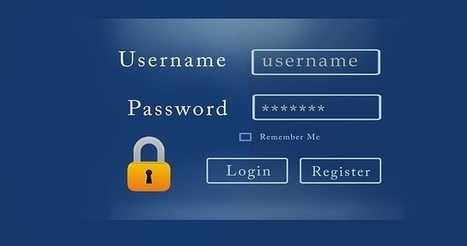
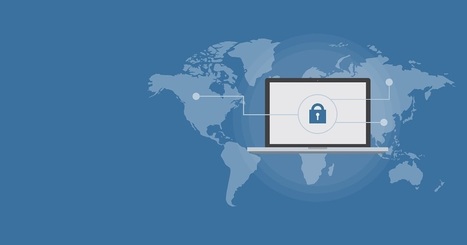
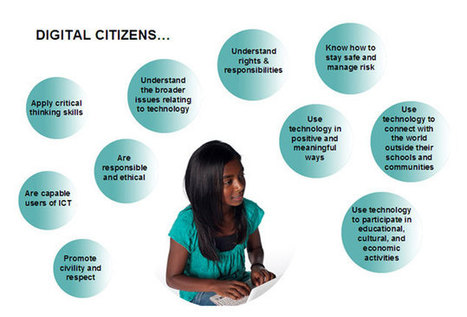
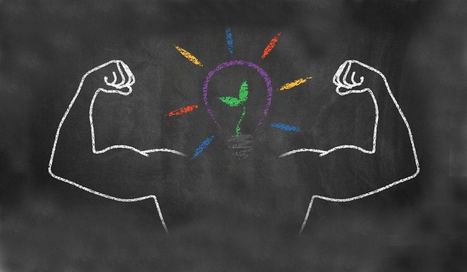

![Digital Literacy [resources on PearlTrees] | Information and digital literacy in education via the digital path | Scoop.it](https://img.scoop.it/wjOE6KZN4_sQOrrlQHV39Tl72eJkfbmt4t8yenImKBVvK0kTmF0xjctABnaLJIm9)

